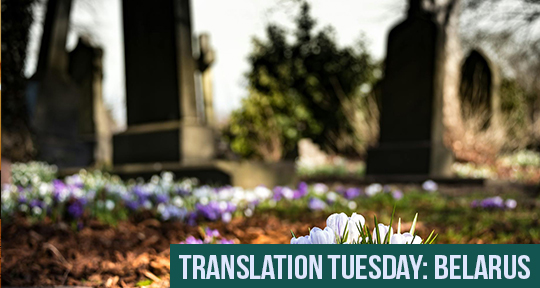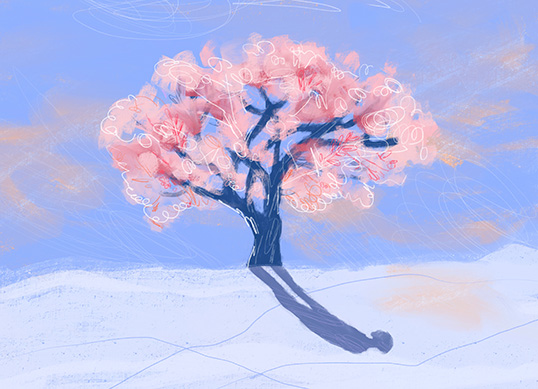A trio of untitled poems from the Belarusian poet Dzmitry Rubin is this week’s Translation Tuesday feature. Under the threat of repression and the menace of war, the poems, translated from the Belarusian by Jenya Mironava, are skeletal and whisper-quiet, written as if to be conveyed by the shallowest of breaths. The first murmurs of Belarus’s rich literary legacy, unmourned and un-remembered; the second and third, more plaintive, contain the poet’s hushed appeals to be fairer and braver—proscribed virtues in the Belarusian state.
In the graves
Of Belarusian writers
Lie
Human bones
But where
The writers themselves lie
Is a Soviet secret
*
And when/if tomorrow war begins
And when/if tomorrow begins
And when/if tomorrow
And when/if
And
Lord
Teach me how to breathe
Without
Taking away air from others
*
By the house a street light
Will shine all night
If only I had its courage
Translated from the Belarusian by Jenya Mironava
Dzmitry Rubin was born in the village of Sachaniaty in western Belarus. After graduating from Rechytsa Pedagogical College, he went on to teach Belarusian language and literature. He did not graduate from Belarusian State University with a degree in philosophy and social sciences. Dzmitry established himself as a poet and prose writer, as well as a former literary columnist and editor of the literary magazine Maładosć (Youth). He is also the author of a series of essays on the topic of suicide for a platform providing mental health education and support. Together with literary scholar Alena Lepishava, he co-founded the Rubinavy horad (Rubin City) project, a public venue for literary gatherings, courses, and lectures. Dzmitry’s work has been featured in numerous collections. His debut volume of poetry, titled Vypadak (Accident), was published in 2023.
Jenya Mironava is a native of Minsk, Belarus and a long-time resident of Cambridge, MA. She holds a PhD in Slavic Languages and Literatures from Harvard University, where she is currently teaching Russian and Belarusian.
*****
Read more on the Asymptote blog:




